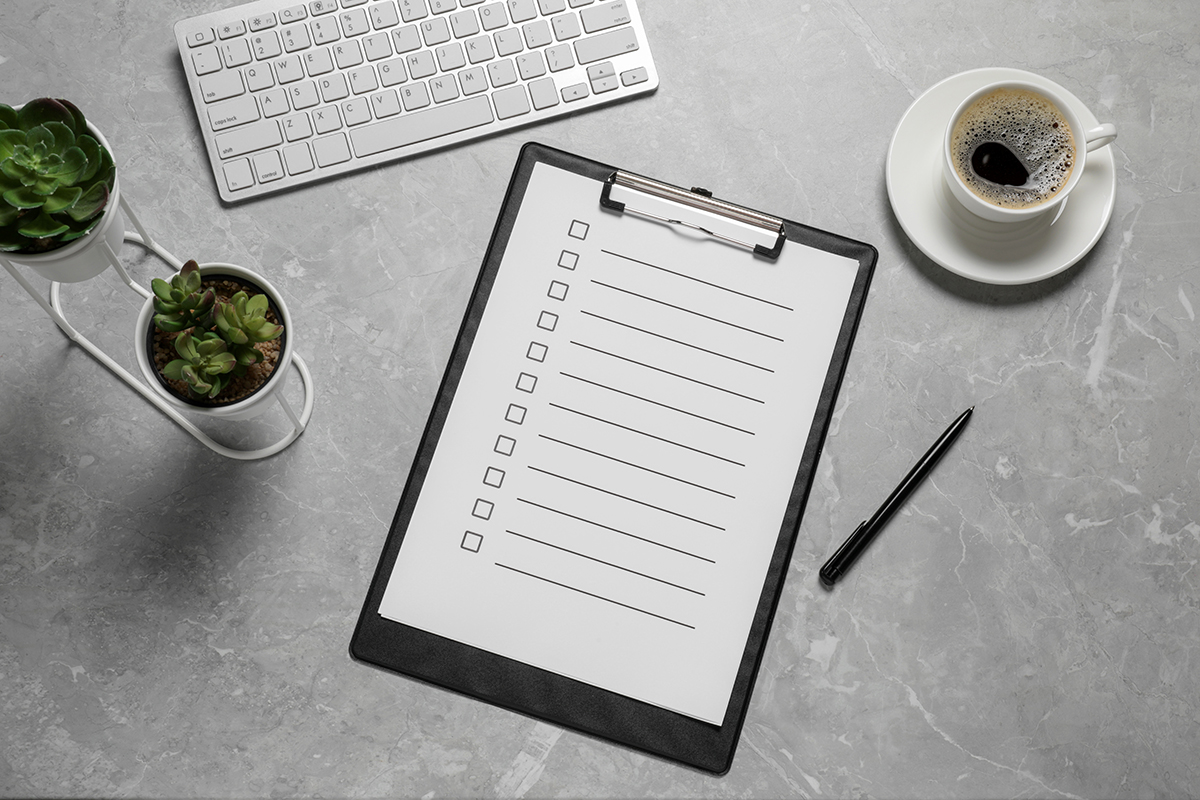A Reading Log Template is a simple way of documenting an individual’s reading activities, notes, and thoughts on what they have read.
It is similar to a diary or a journal as it helps you record what you have read so far, how many pages you have read, and your experience and views.
Log Template
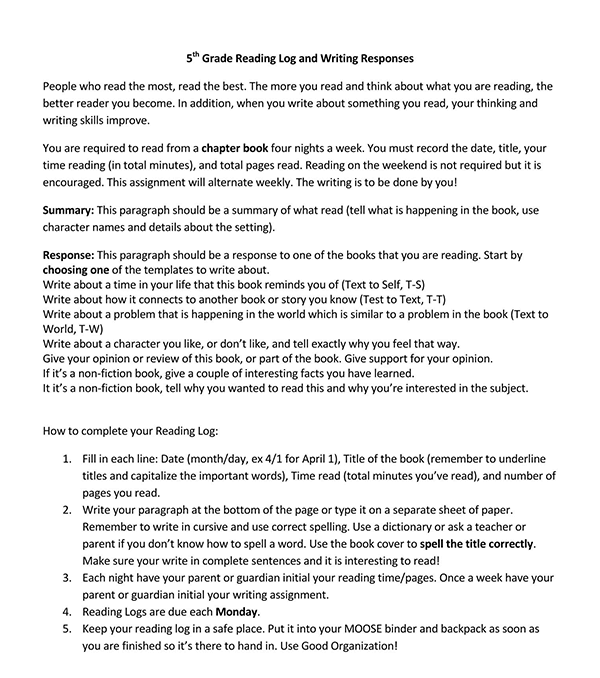
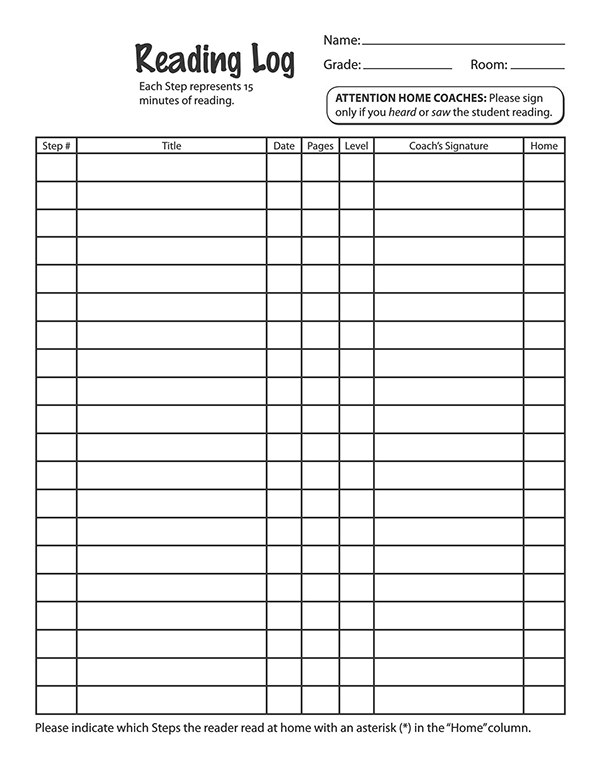
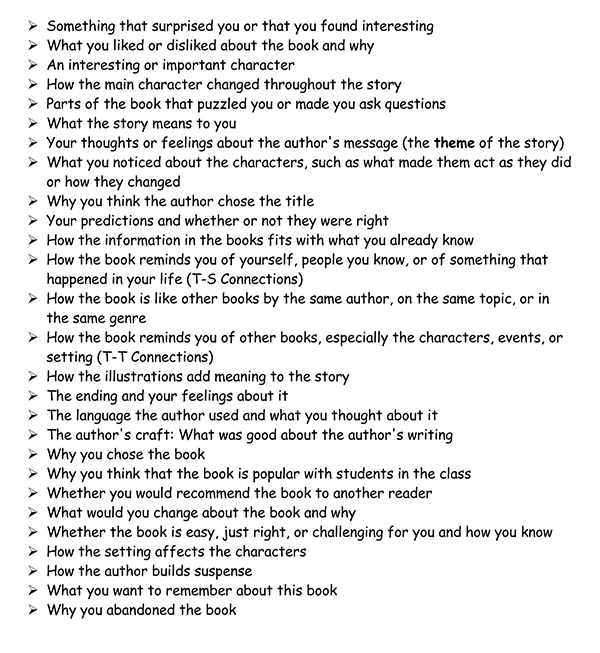
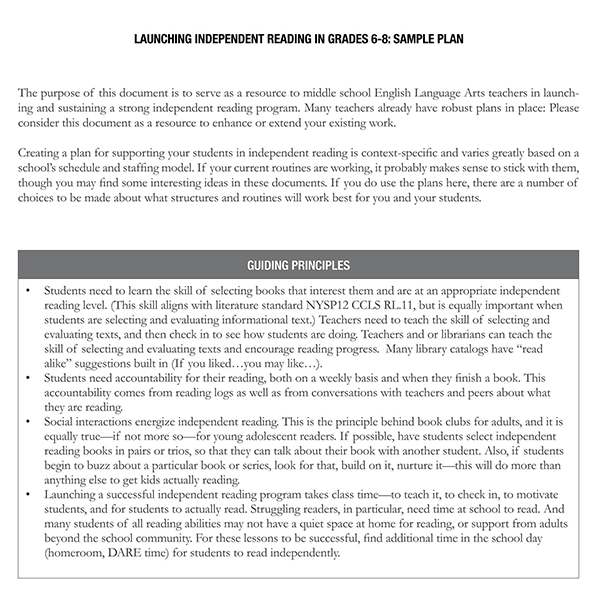
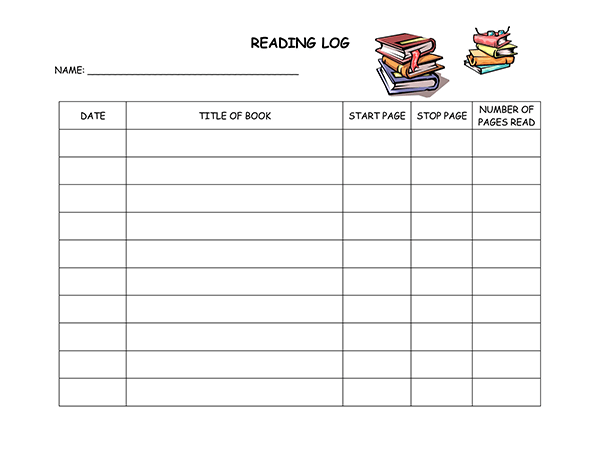
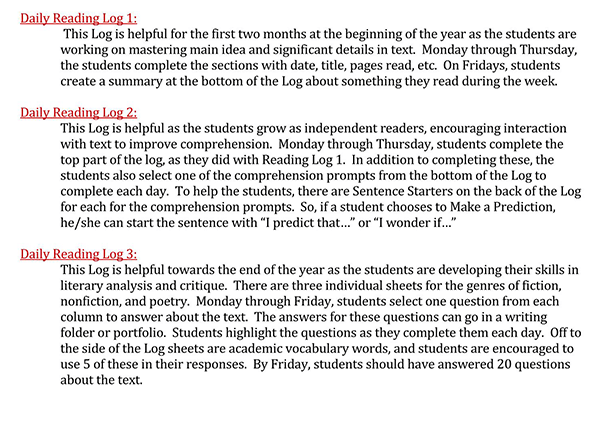
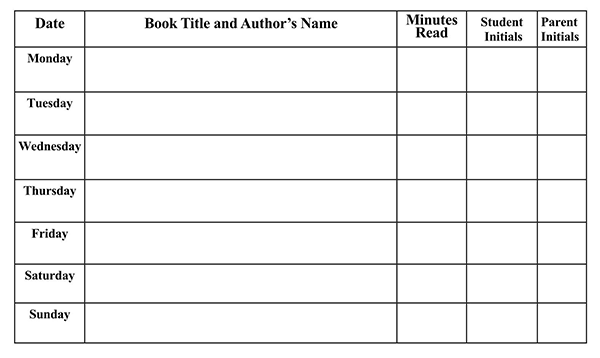
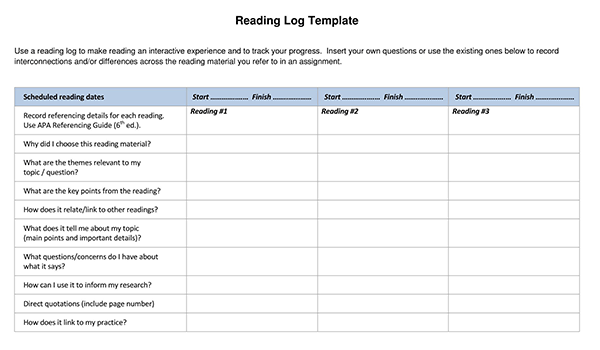
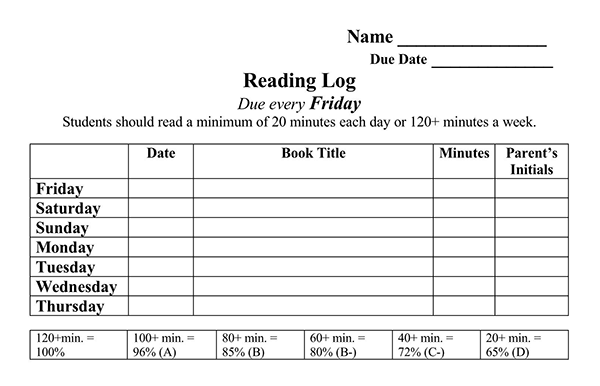
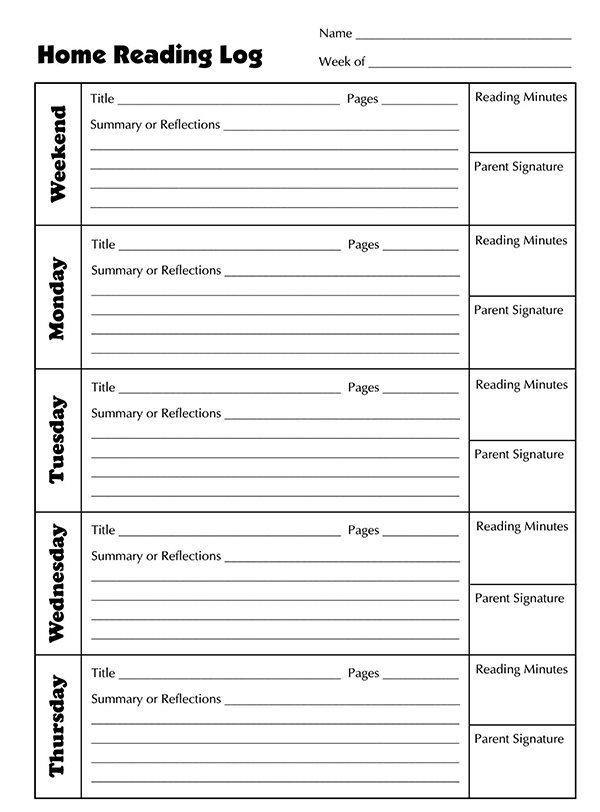
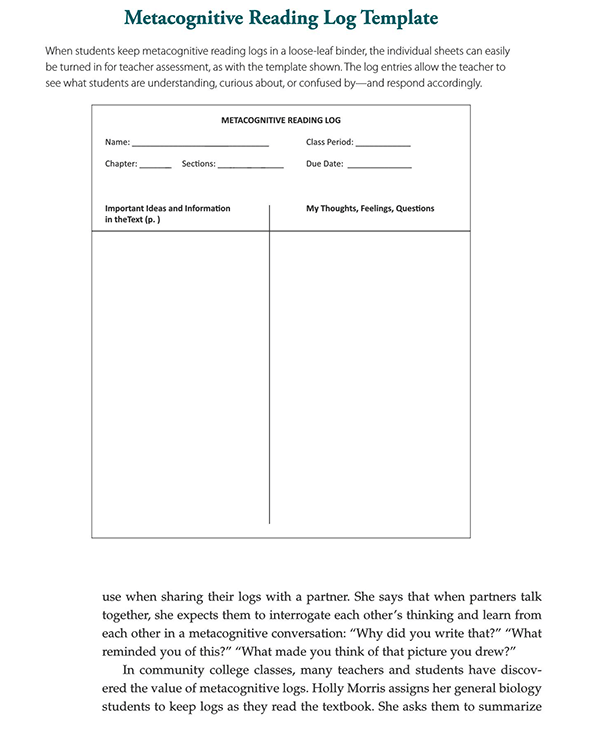
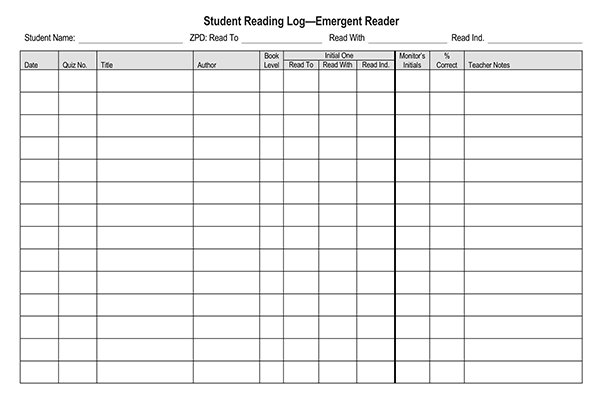
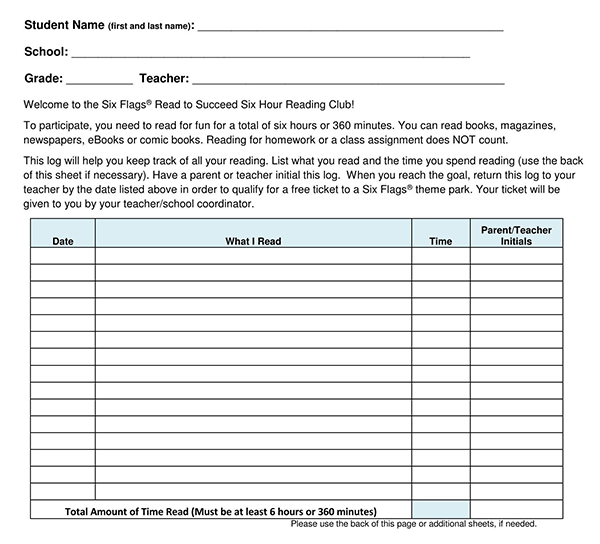
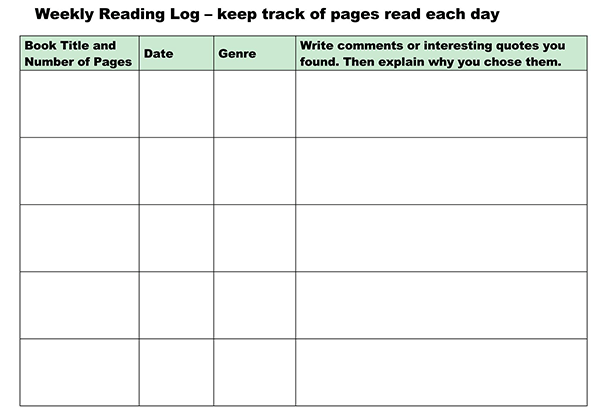
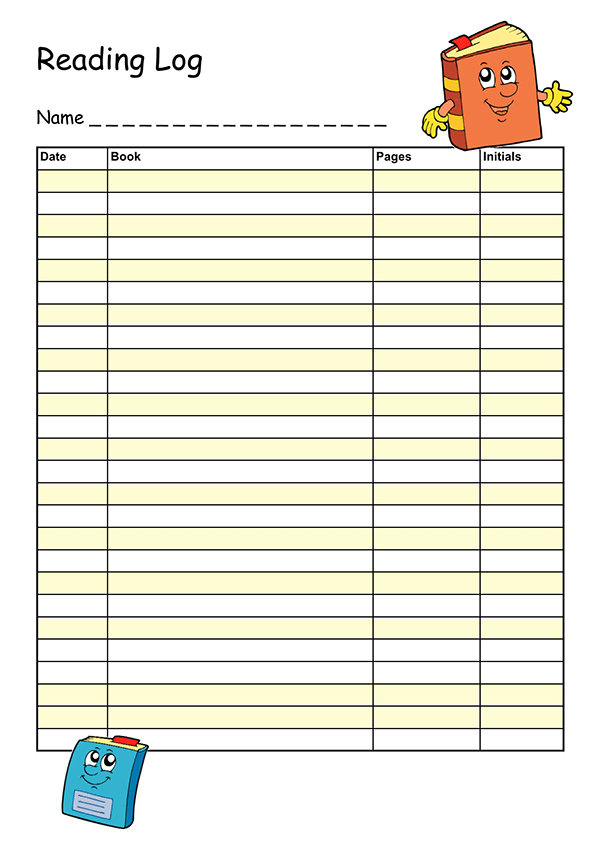
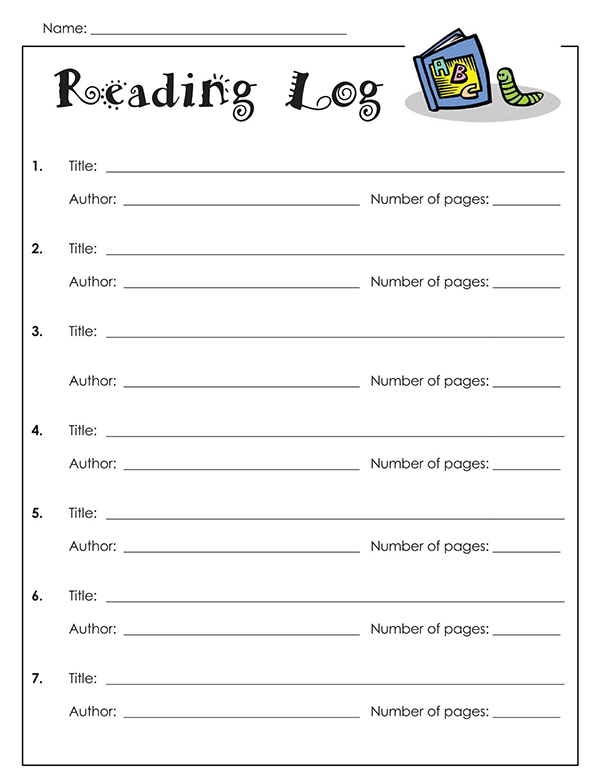
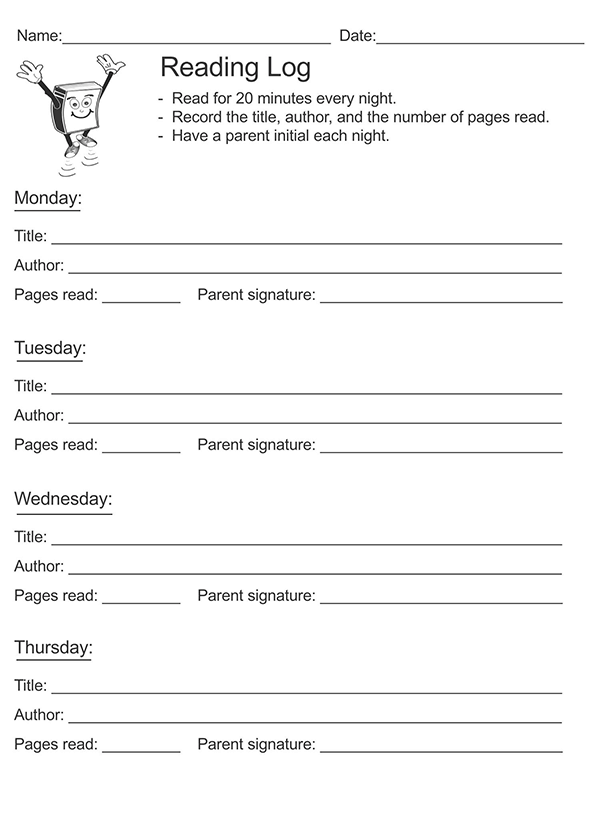
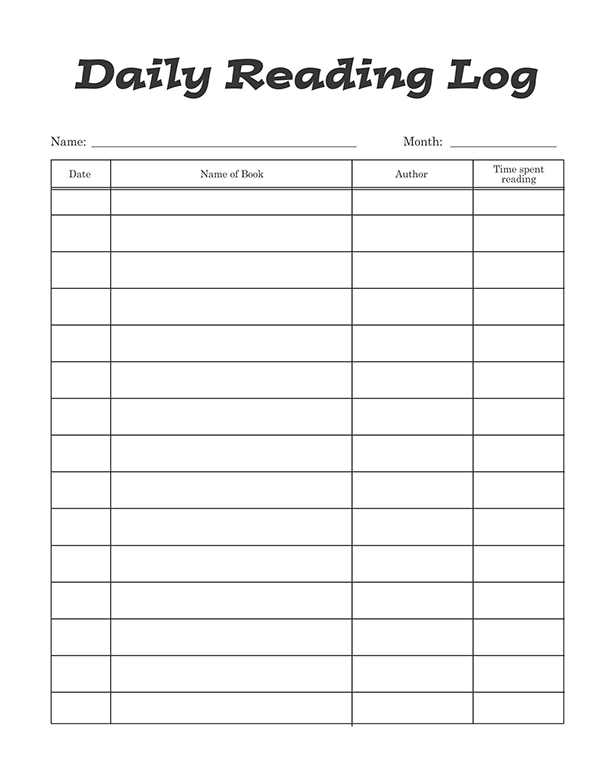
Reasons of Keeping it
There are several reasons you should consider keeping a reading log, from capturing your thoughts about the books you have read, noting down the different messages you draw from each book, and keeping track of the different storylines.
It is a handy tool that everyone should consider having. It also helps remind students to read and encourages them to note down everything they have read. Teachers and parents also use it to show students the books they have read and encourage them to read more. Other significant benefits include:
Overcoming the forgetting curve
The benefits of reading are usually negated if you do not remember what you have read. However, studies have shown that most people tend to forget nearly everything they have read within 24 hours. It can come in handy and help you to have a better chance of overcoming the forgetting curve.
Although noting down everything you have read or the key things to remember may not directly improve your memory, it will help you keep track of the books you have read and make it easy to revisit that information anytime you need to.
Maintaining a list of useful books
It is common for people who love to read books to ask for books. As an avid reader, you may probably get this question many times from your friends, family, or colleagues. To ensure that you always have a list of books to recommend to them, it is recommended that you note down the titles of each book you read and include a brief overview of what the publication is all about as it will help you remember and give the proper recommendations.
Evolving your worldview
Reading enhances how you view the world. From reading different books written by different people, from different parts of the world, you understand different cultures, opinions, and perspectives of life and livelihoods. Recording different books you read will help you retrace the different stories, values, and messages you value from the different books you have managed to read.
Passing on to kids
A book log is an excellent way of motivating your kids to read more books and become avid book readers like you. Whether you are looking to give your kids a must-read list of books or simply to have them read some of the information you have found helpful over your reading period, you can use a log to do so.
Citing sources for a book
Citing a book, quote, or any other formal publication gives credit to what you are talking about. Whether you are writing a book, giving a speech, or writing a blog post, quoting your sources can help show your audience that you have done some due diligence and are familiar with related topics.
In addition, noting down important points to remember or specific quotes that you would like to use in the future can help you remember them easily and incorporate them in your writing or speech.
Related: 8+ Free Book Cover Templates for Word & PDF
How to Take a Log
There are two main reasons for using a template: formal school assignments and personal/private use.
Here is a comprehensive breakdown of how you should use it in either case:
Reading log for school
If you are using the template for formal school assignments, here are some of the things that you should do:
Review assignment
When keeping a log for your formal classroom assignments, it is vital that you only include the critical information required for each assignment. Make sure to go through the assignment requirements carefully and ask for clarifications from your teachers before noting down the details.
Some of the information that you should consider including in the log include:
- The title of the book
- The title of the assignment
- The author or volume of the book
- The dates you read each page
- The amount of time you spend reading
- Major characters and plot development
- Questions you may have as you read
Design template
Although we recommend you use our ready-to-use templates, you can still create or design one from scratch using your notebook or computer software such as MS Word. First, create or design a template with all the essential components you would like to have. Ensure that you allocate enough space for each item.
Here are some more free samples for you:
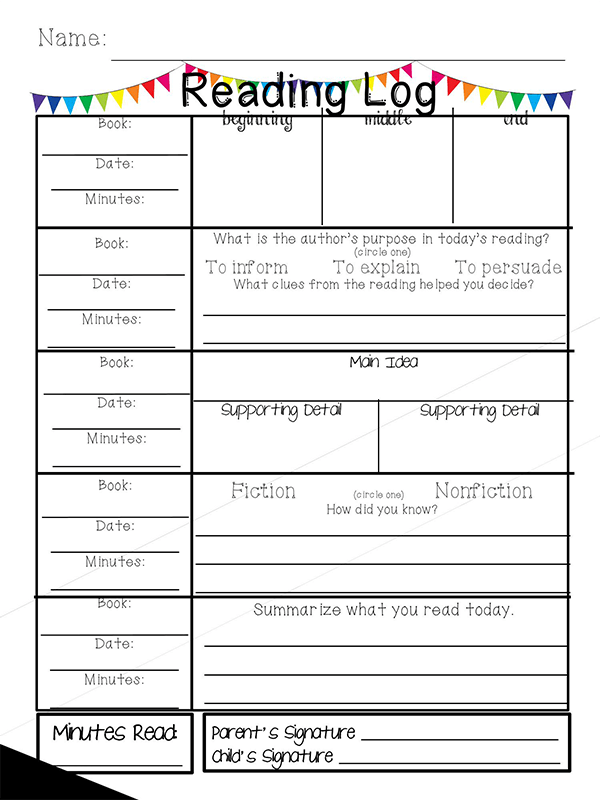
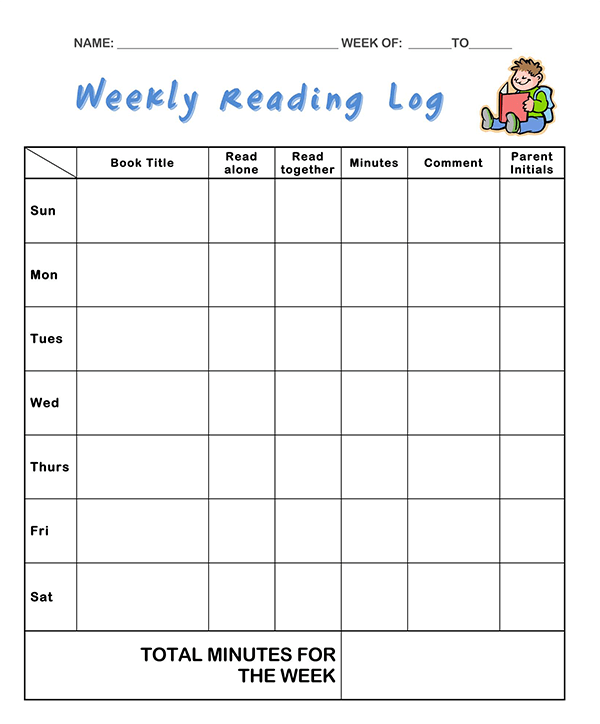
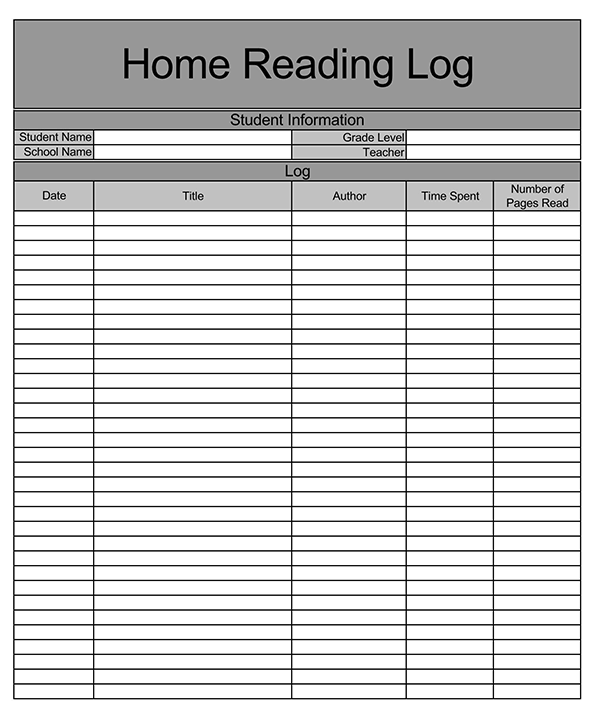
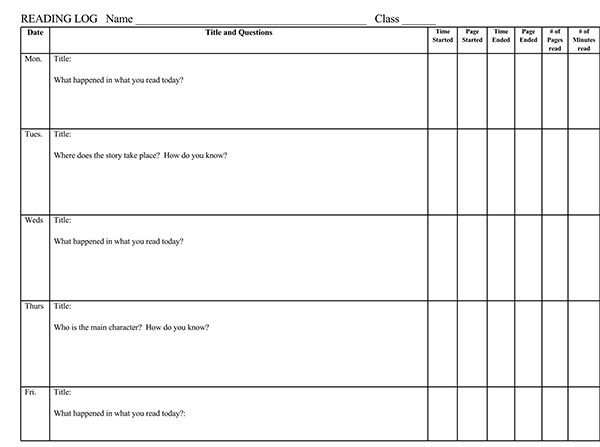
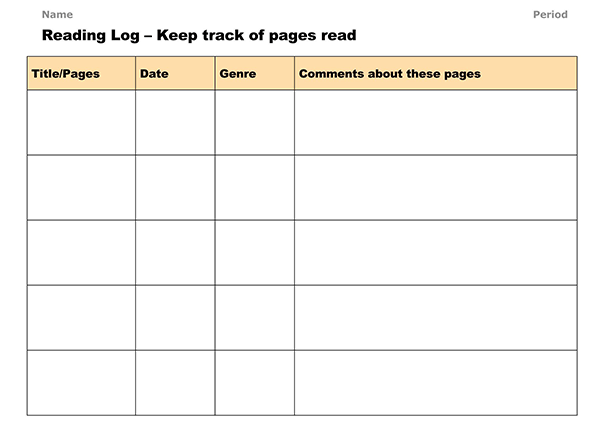
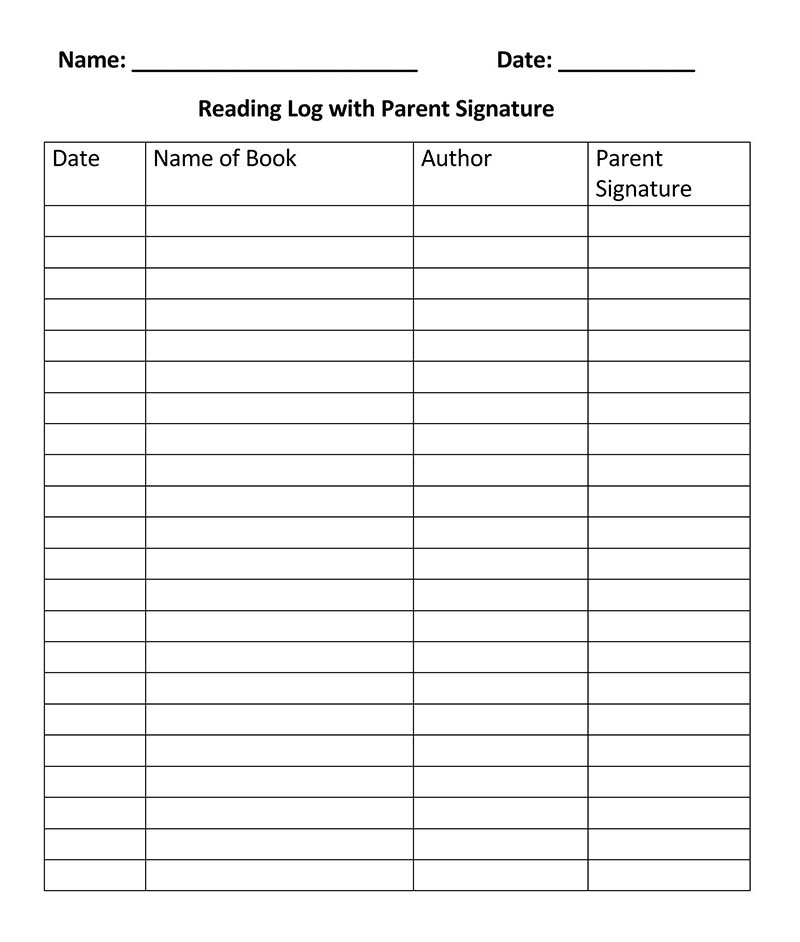
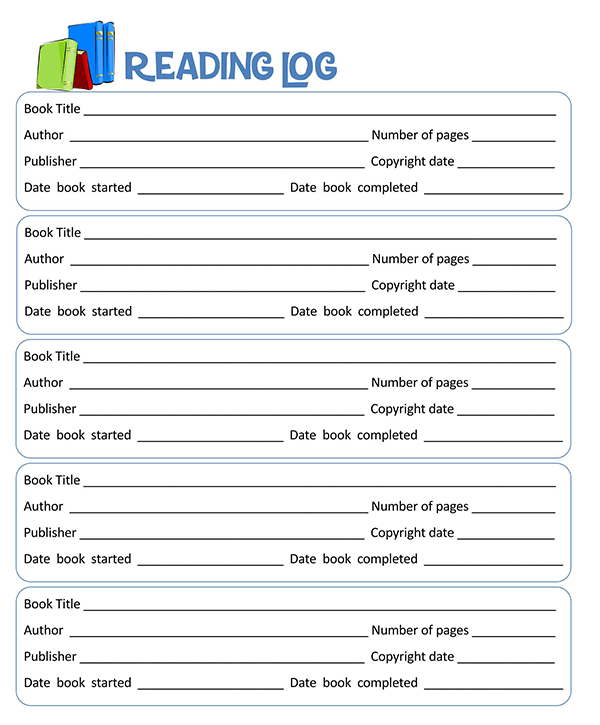
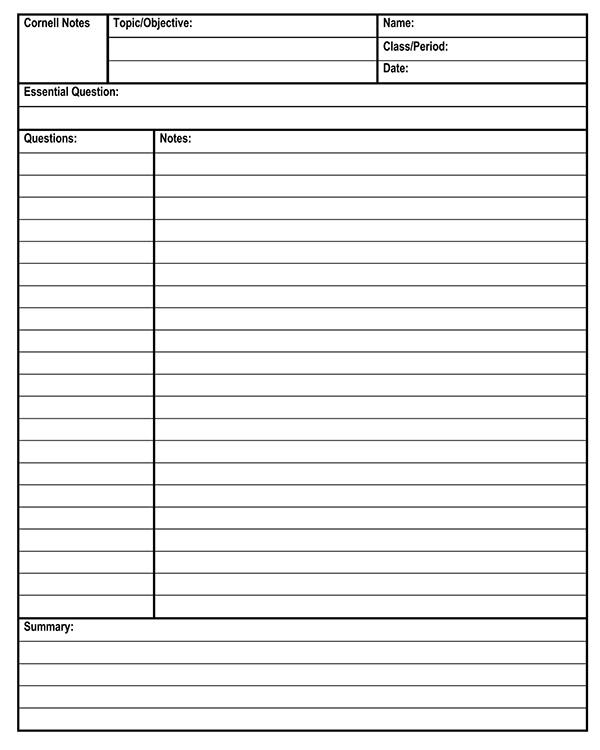
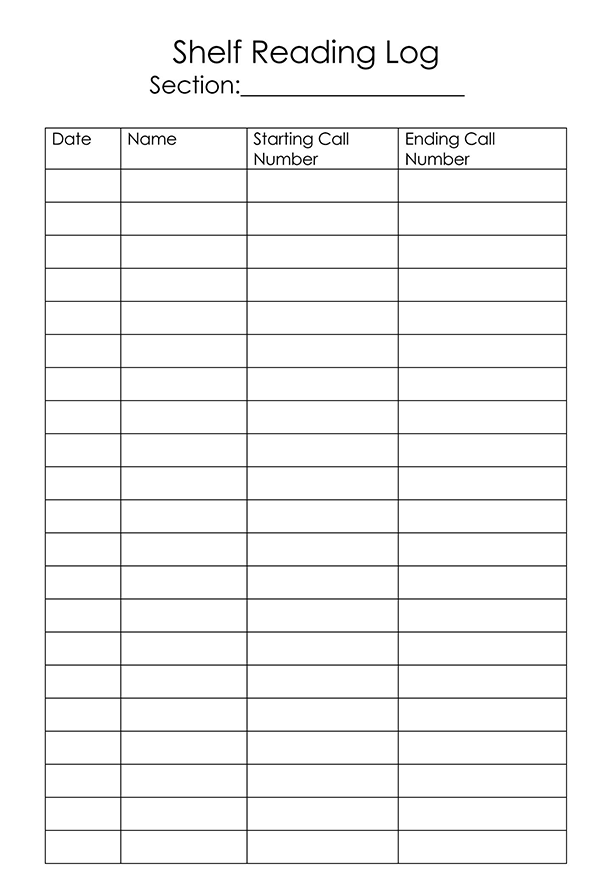
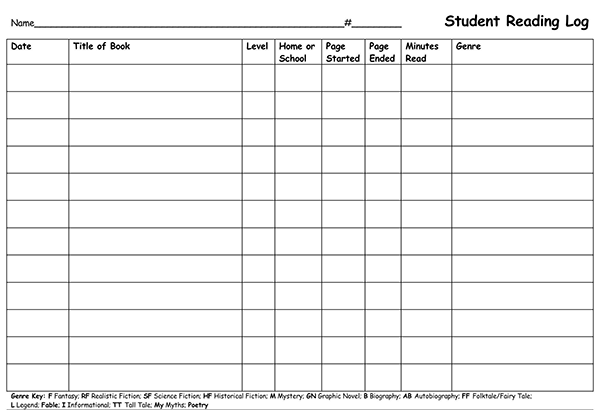
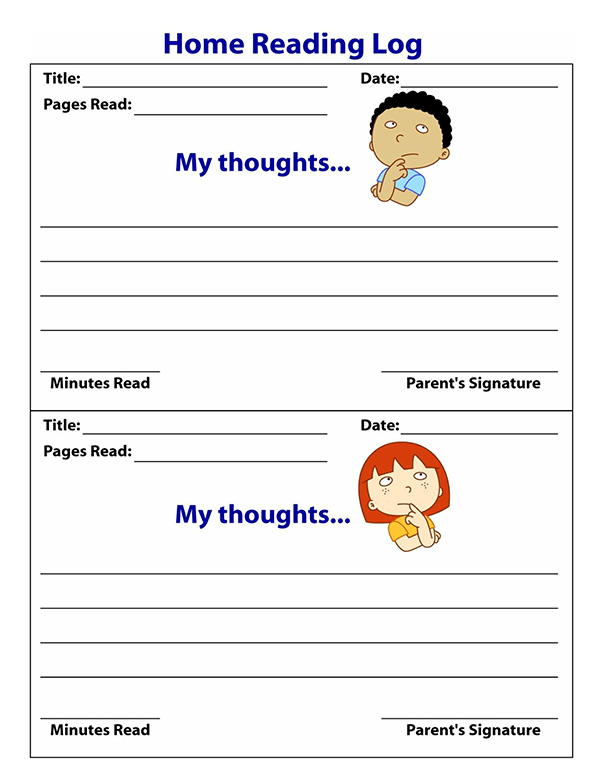
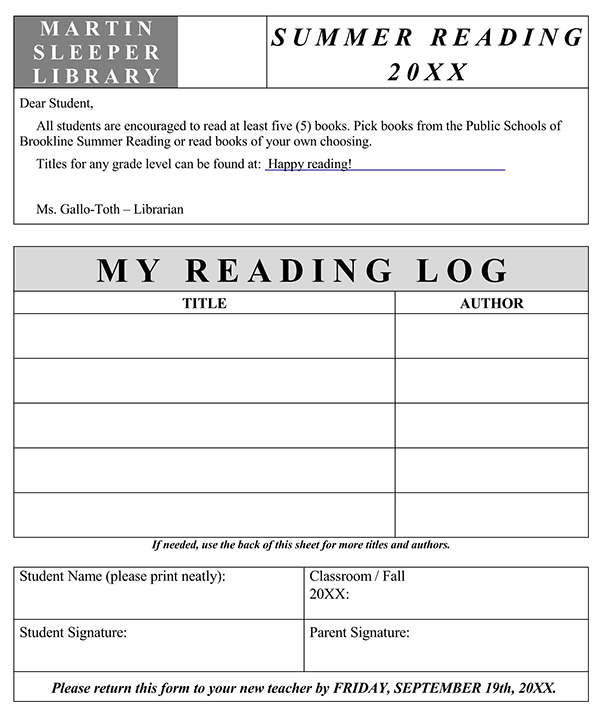
Enter all assignments
Note down all the reading assignments, including academic reading, poems, books, and other materials that you have been given by your teachers, making sure to include the information about the book, author, and the duration of the assignment.
Read slowly and carefully
When you have been assigned some assignments, you must take your time to go through each assignment keenly, pay attention to key details, and note down all the critical information you garner.
EXAMPLE
Note down the central theme of what you are reading, the characters, and character development, and also make sure to write down any questions that you may have.
Read your assigned texts
If your teachers have assigned you a task, you must understand what the assignment is all about to do it well.
EXAMPLE
Although you may sometimes be given a general assignment such as completing three books by a certain period, it is still essential to understand the type of books you would be reading, the content to look for, and the areas to note down reading
Other times you may be assigned specific assignments with specific goals and objectives; ensure to allocate enough time to complete all your assignments, and don’t forget to note down everything you read.
Record bibliographical information
In most academic assignments, you will be required to provide a complete bibliographic citation for your work. Make sure to note down the biographical information for each book, especially if it is an E-book.
Here is a breakdown of the bibliographical information you should include in the template, the author’s name, the title of the book, the publication dates, the publisher’s address, and any other identifying information such as co-authors, editions, etc.
Write factual details
When you have been given an assignment, in most cases, you will be required to provide facts on what you have read.
To help you keep track of what you have read and the facts, consider noting down the following in the log:
- Plot elements
- Character names
- Setting
You may also include other vital elements such as the plot development, the theme, arguments, etc.
Copy essential messages to the log
Most formal assignments usually require identifying specific passages or quotations significant to certain questions and worthy of further analysis. Therefore, when reading a book, make sure to note down any phrase, quote, or passage that you find to be intriguing, mysterious, or confusing.
Write your questions
Writing down questions that you may have while reading a book or any other publication is important as it helps you grasp the content much faster as you try to get answers to those questions. Writing the right questions can also help prove to your teachers that you read the book you were assigned to read.
Note personal thoughts
Reading is all about connecting with what other people think, feel, believe, or do. So, when you read a book, note down your thoughts as they will help you understand the book even further, and you can easily remember what you read in the book by going through some of the thoughts you wrote down.
Use your observations to make analytical claims
Connecting your personal experiences with what you read in a book is a great way to understand what it is all about and analyze the book more critically. Note down some of the things you love about each book you read and relate them to what you felt.
Relate it with academic work
If you have been given a formal assignment, chances are, what you are reading is related to other topics or literature work. Therefore, as you read your assigned work, make sure to think of how such books or publications are related to other academic work in your class.
Write formal journal entries
Some assignments may require that you write formal journal entries. Journal entries require that you write complete sentences and paragraphs highlighting what you have read and providing an in-depth view.
Focus on long-term development
A log is an excellent way of tracking your reading progress. By noting down the different things, you learn how much you have improved your reading ability and time, you will see how far you have come and how you are progressing.
Steps to Create a Personal Log
The second reason for keeping a log is for personal use. Most people who are fond of reading usually keep a template to help them remember the different chapters, flow, and theme of the book. Just like when keeping it for school, there are several things that you should consider when using it for personal use.
Following are a few steps to create your personal log:
Design a template
Start by choosing or designing a template with all the entries you may want to use while reading your books. You may choose to download a pre-made template or craft one from scratch using software such as MS Word.
For this purpose, the following are some free templates:
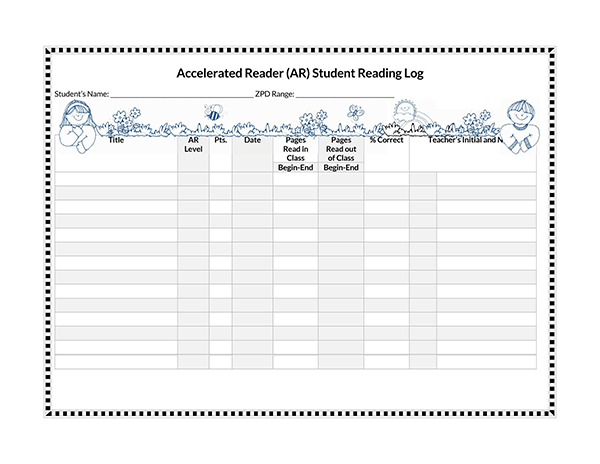
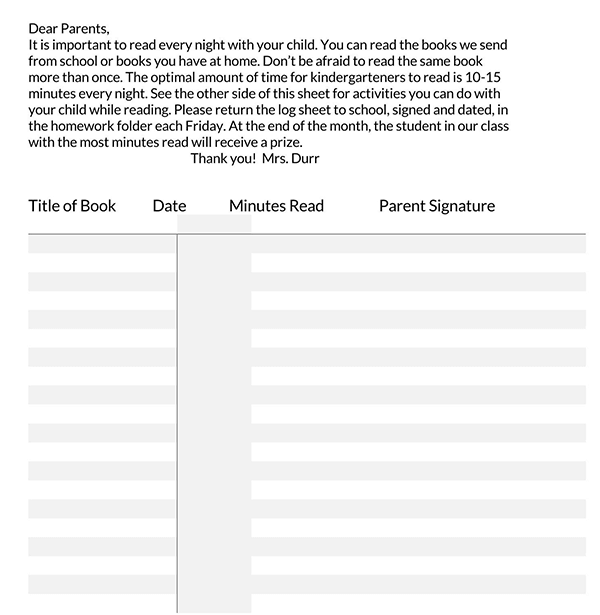
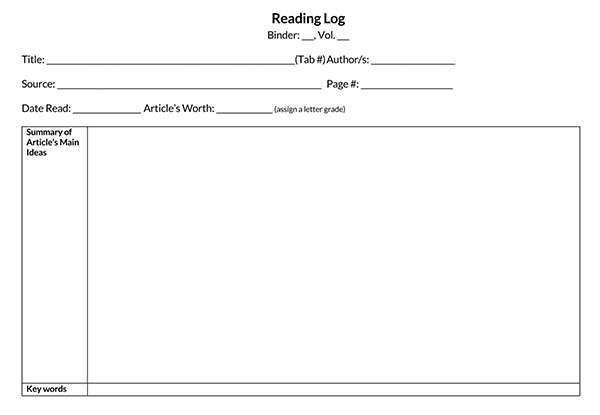
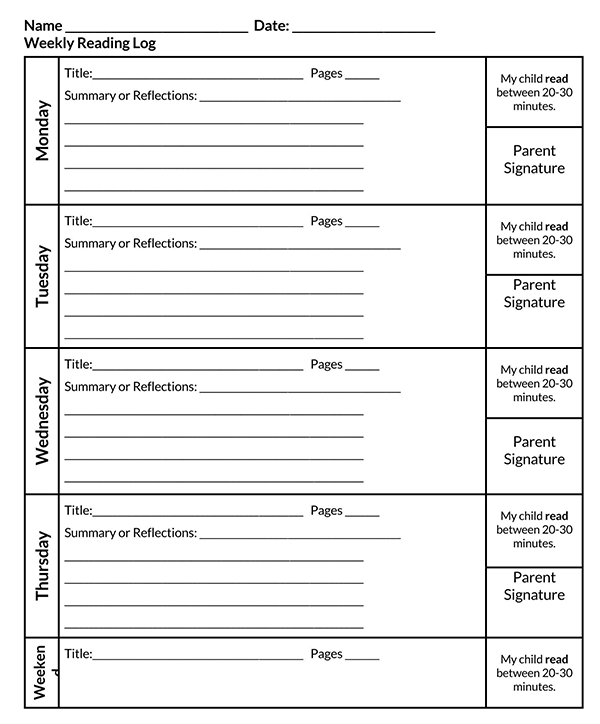
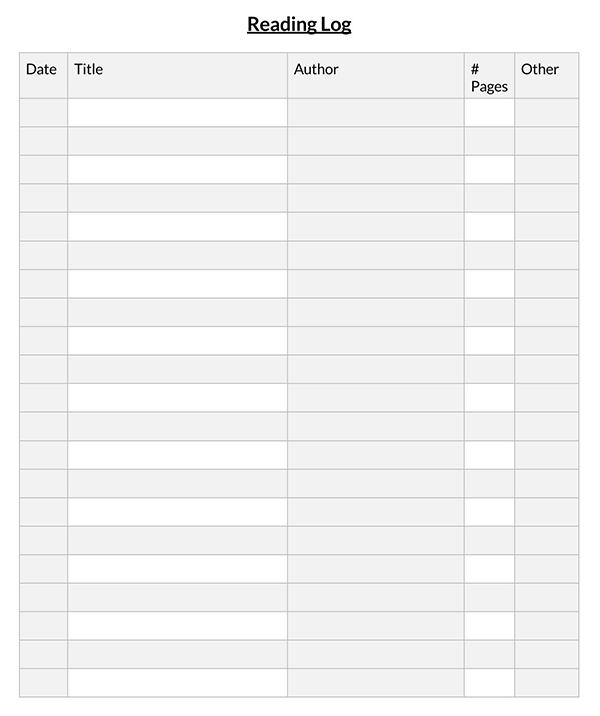
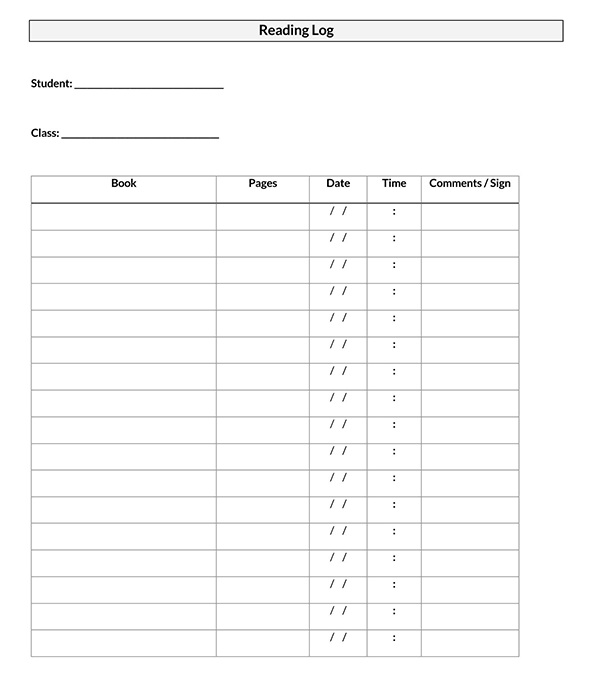
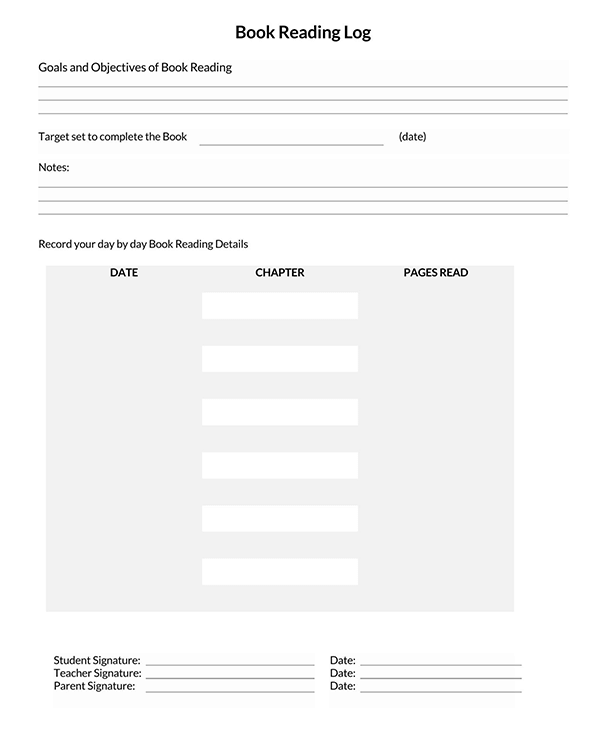
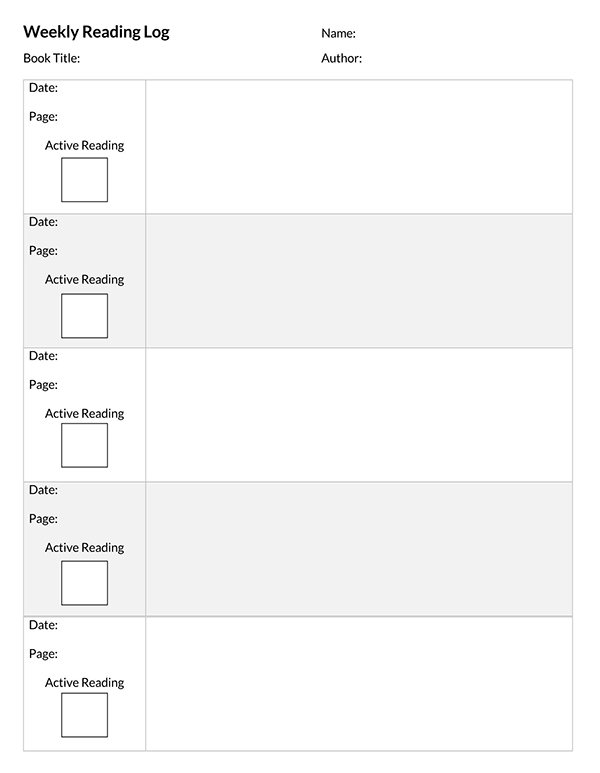
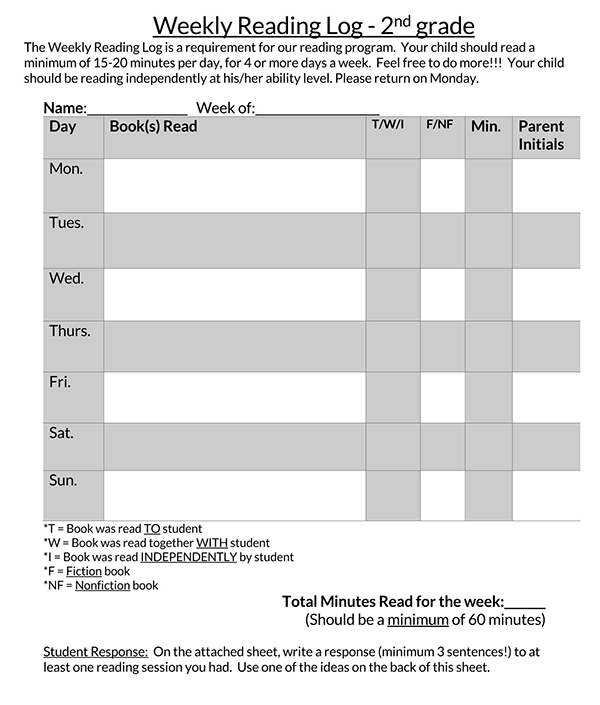
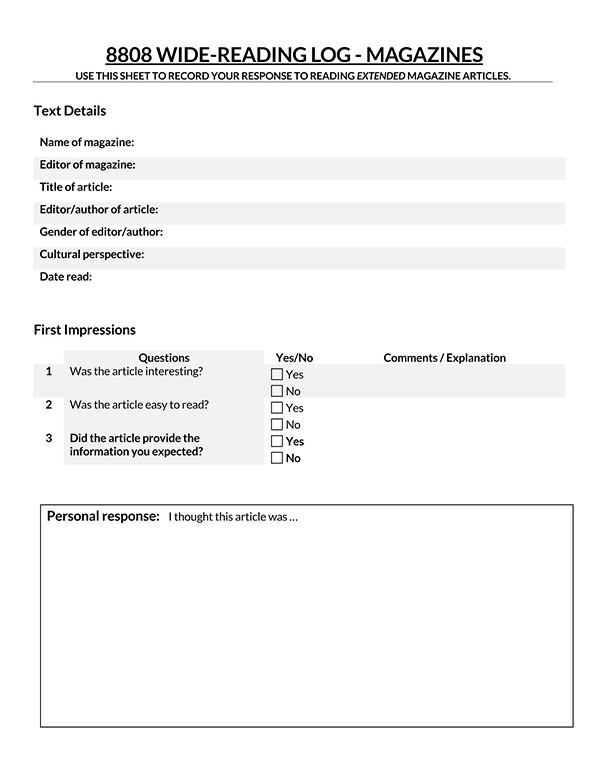
Read actively and slowly
The best way to read any book or publication is to read actively, noting down everything you learn as you read. Some of the things that you should consider noting down in your log include:
- The styles
- Genre
- Theme
- Publication
- Book titles
To ensure that you remain an active reader, consider doing the following:
- Set some time to read every day
- Limit your screen time and resolve to read
- Go for books you enjoy reading
- Get recommendations for books to read from your friends, family, or colleagues who are active readers
Write bibliographical information
The best way to remember each book you read is by noting down important information about each book. For each book, note down the author’s name, title, the year of publication, and the publisher’s name. You may also include the volume, co-authors, and the publisher’s city. This information will help you remember the book and help you recommend it to your friends.
Include the date when you read
The best way to keep track of your performance is to note down the dates when you read. This is especially important if you are reading several books at once. By noting down the dates, you may review them later to see how the information you obtained from such books has helped you out in your life.
Write page number for your favorite passage
When reading a book, you will always find phrases, quotes, passages that you would like to remember, quote, or use in your publications or speech; make sure to note down the different pages with a hint on what that page contains to help you trace it in a much more manageable way.
Take notes
As you read a book, article, blog, or any other publication, you will always find essential information to note down. Although you may not be able to note down every piece of information you get, make sure to note down those that you don’t want to forget.
Reflect on the book
After reading each book, you must reflect on each book and understand its meaning and significance. Review the information you obtained, how your thoughts shifted, and some of your favorite aspects. Note down everything immediately after reading the book since the ideas will still be fresh in your mind to preserve these reflections.
Reread your log
After compiling your log, make sure to go through it to see if there is any vital information that you may have left out or any changes you would like to make to the log. Reading your log will help you understand how your taste has grown over time and how the books you read are impacting your daily life.
NOTE
Using a reading log can encourage you to read more books as you track your progress. However, not everyone conforms to the idea of writing down everything they read.
If you find a log to be a distraction for you, it is recommended that you discontinue its use. On the other hand, if you choose to use a reading log, keep a backup copy, primarily documenting your reading log on a computer.
Tips for Using It
Here are some tips that you should consider when using a template:
- When documenting your reading experience in your reading log, don’t get caught up in writing perfect prose. Instead, use simple words to help you understand what you are reading to help you avoid wasting time and remain focused.
- Logs can help you become an agile reader. However, it may only work if you are consistent in reading and writing down the important things you learn while reading different publications.
- Make sure to note down essential items immediately when the information is still fresh in your mind.
Conclusion
Templates are used for various reasons; from helping students reflect on specific skills or strategies to providing teachers, parents, and guardians with a means of monitoring their child’s progress at school and home, a template is a must-have item.For agile readers, a log template is an excellent way of documenting the experiences they get while reading different books, noting down important information, quotes, and passages that they may later use in their speech or other publications.
Regardless of the reason for using a reading log, one thing that cuts across is consistency. If you are not consistent in using it, you may not track your progress and remember critical information you get from each book.




